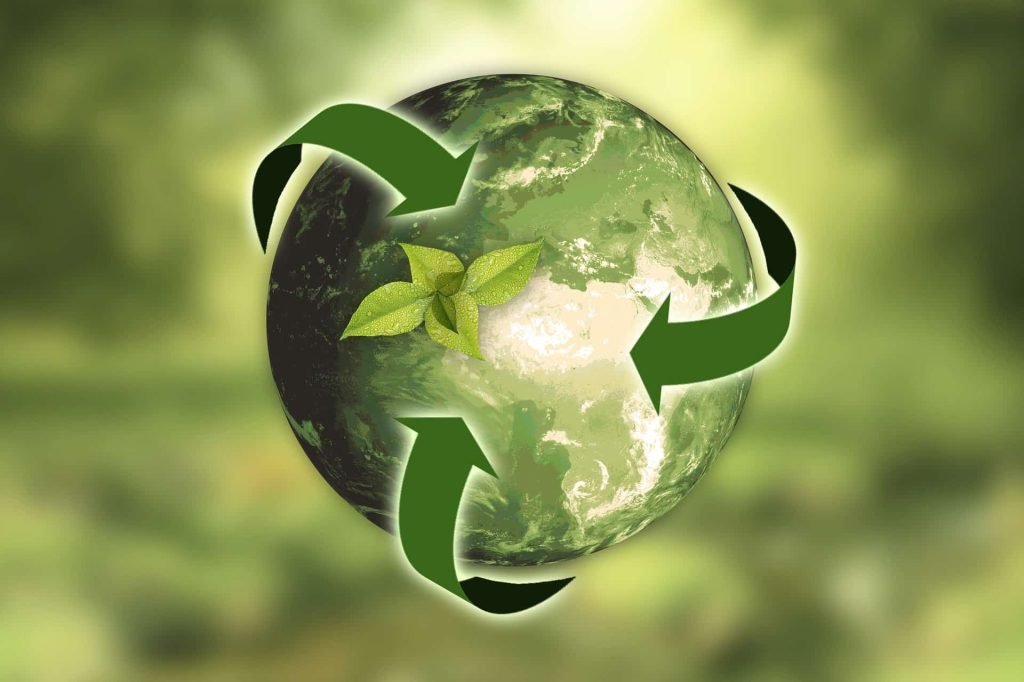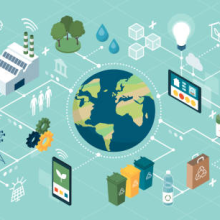How to overcome Scepticism in Making a Big Impact on the Environment
Making an impact on the environment can be a daunting task, especially when faced with skepticism and resistance.
However, it is possible to overcome these obstacles and make a significant difference in our environment.
By building awareness, engaging in meaningful conversations, improving access to resources, and making small changes in our daily habits, we can all help create a positive environmental impact.
The pursuit of significant environmental impact is met with widespread skepticism, confronting individuals who aspire to make a difference.
All of us bear responsibility in safeguarding our planet and striving towards environmental progress.
Given the current state of environmental decay, it can be a daunting task to believe in the efficacy of individual actions.
Nonetheless, it is feasible to surmount such skepticism by comprehending its origins and leveraging our expertise and resources to enact constructive modifications.
By doing so, we can commence to meaningfully address the global environmental crisis.
The attainment of a significant impact on the environment hinges on successfully surmounting scepticism.
Within this piece, we shall delve into the key reasons behind the importance of overcoming scepticism, and furnish actionable pointers to facilitate your efforts in this regard.
We’ll cover the following topics:
- The effects of scepticism on the environment
- Understanding the psychology of scepticism
- How to communicate effectively with sceptics
- Leading by example: taking action despite scepticism
- Joining forces: finding like-minded individuals and groups
With these tips and strategies, you’ll be equipped to tackle scepticism head-on and make a big impact on the environment.

Section 1: Understanding Scepticism
Effective environmental impact requires the transcendence of skepticism. Skepticism, a common inclination towards questioning the veracity and authenticity of information, poses a formidable challenge to progress.
While skepticism can be reasonable, it can also impede the forward momentum of environmental advocacy and action.
In particular, skepticism can hinder the achievement of positive outcomes in the environmental sphere.
For instance, a person who remains doubtful about the existence and severity of climate change may be less inclined to adopt sustainable practices or support measures aimed at mitigating the effects of climate change.
This, in turn, can impede the efficacy of environmental initiatives.
According to the Pew Research Center, a mere 51% of Americans believe that climate change is mainly caused by human activity.
Overcoming skepticism is, therefore, essential if we are to achieve meaningful progress in environmental stewardship.
The existence of a prevalent level of scepticism regarding this matter is strongly indicated.
To surmount this obstacle, a comprehensive comprehension of the underlying reasons for such scepticism is crucial.
It is imperative to tackle the fundamental sources of scepticism and furnish irrefutable proof corroborating our assertions.
In subsequent segments, we shall examine tactics for conquering scepticism and effecting a beneficial transformation on the environment.
Section 2: Overcoming Scepticism
Do you encounter difficulties in persuading others to embark on your endeavors aimed at creating a favorable impact on the environment?
Below are some insightful recommendations that can assist you in surmounting scepticism and effecting change.
- Start Small
Sometimes the best way to overcome scepticism is to start small.
Instead of trying to make huge changes right away, focus on making small changes that are easy to implement.
For example, start by recycling or composting, turning off lights when leaving a room, or using a reusable water bottle.
These small changes can make a big impact over time and show others that even small actions can contribute to a healthier environment.
- Lead by Example
One of the most effective ways to overcome scepticism is to lead by example.
By making sustainable choices (check here for more on this) and showing others how easy it can be, you can inspire them to do the same.
For example, if you start biking or walking to work instead of driving, your coworkers may be more likely to consider alternative transportation options.
If you start a garden or compost pile, your neighbors may be more inclined to do the same.
- Educate Others
Another way to overcome scepticism is to educate others.
Many people are sceptical because they simply don’t understand the impact their actions have on the environment.
By providing them with information and resources, you can help them see the importance of sustainable living.
You can share articles, books, documentaries, or even invite them to events or volunteer opportunities that support environmental causes.
- Join Forces
It can be challenging to overcome scepticism alone. Consider joining forces with like-minded individuals or groups to amplify your impact.
Whether it’s joining a local environmental organization or starting a community garden, working together can help overcome scepticism and make a bigger impact.
By implementing these tips, you can overcome scepticism and inspire others to make a positive impact on the environment. Remember, change takes time, but every small action can make a big difference.
Section 3: The Power of Collective Action
Individual efforts are crucial in making a positive impact on the environment, but collective action can magnify those efforts significantly.
When people come together to work towards a common goal, the impact can be much greater than the sum of their individual actions.
Community involvement and support can provide various benefits, including shared resources, increased motivation, and a sense of belonging.
When people feel like they are part of a group working towards a shared goal, they are more likely to stay committed to that goal and see it through to the end.
There are numerous examples of successful community-driven initiatives aimed at reducing environmental impact.
For instance, in Seattle, the P-Patch community gardening program has been running since 1973, and now boasts over 90 gardens across the city.
The program provides city-dwellers with an opportunity to grow their food, build community connections, and beautify the city’s urban landscape.
Similarly, the Transition Towns movement, which originated in the UK, has spread to over 50 countries worldwide.
The initiative seeks to help communities prepare for a post-carbon future by promoting sustainability and resilience.
Transition Towns encourages local communities to take action on issues such as food security, renewable energy, and waste reduction.
By coming together as a community and working towards shared goals, individuals can make a big impact on the environment.
Collective action provides an opportunity to pool resources, share knowledge and experience, and achieve something much greater than what could be done alone.
Conclusion
In conclusion, scepticism can hinder our efforts to make a positive impact on the environment.
However, by understanding the root causes of scepticism and taking action to overcome it, we can make a big difference.
Starting small, leading by example, and educating others are all effective ways to combat scepticism and inspire change.
Furthermore, collective action and community involvement can amplify our impact and bring about lasting change.
It’s important to remember that even small actions can make a difference, and every effort counts.
So let’s work together to create a sustainable future for ourselves and the planet.
For further reading and support, check out resources and organizations such as the IPCC, WWF, and Ellen MacArthur Foundation.
Here are some links to reputable organizations that focus on environmental issues:
- World Wildlife Fund: https://www.worldwildlife.org/
- Greenpeace: https://www.greenpeace.org/
- Environmental Defense Fund: https://www.edf.org/
- The Nature Conservancy: https://www.nature.org/
- United Nations Environment Programme: https://www.unep.org/
- Sierra Club: https://www.sierraclub.org/
- Earthjustice: https://earthjustice.org/
- National Wildlife Federation: https://www.nwf.org/
- Rainforest Alliance: https://www.rainforest-alliance.org/
- Conservation International: https://www.conservation.org/


